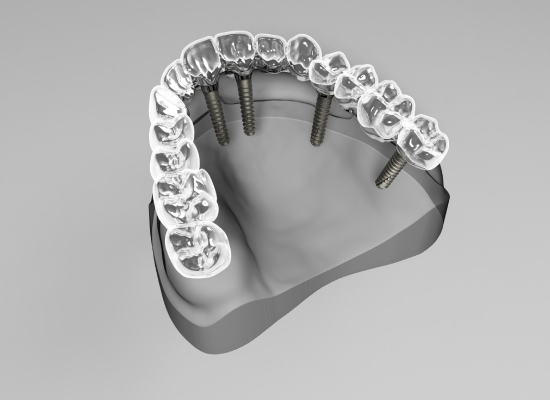How Does Diabetes Affect Dental Implant Treatment? Diabetes can significantly impact dental implant treatment. It can affect the body’s ability to heal, making managing blood sugar levels effectively before and after implant surgery crucial. Additionally, individuals with diabetes may have a higher risk of dental implant failure and infections. Understanding how diabetes affect dental implant treatment is essential for both patients and dental professionals to ensure successful implant outcomes and overall oral health.


What are Dental Implants?
Once integrated, dental implants provide support for individual dental crowns, bridges, partial dentures, or complete dentures. Their unparalleled strength and stability surpass traditional removable appliances or denture creams.
How Does Diabetes Affect Dental Implant Treatment?
Diabetes affect dental implant treatment and your candidacy for dental implants in several ways. Individuals with diabetes may encounter difficulties in healing after implant surgery due to impaired blood sugar control. Elevated blood sugar levels can impede the body’s ability to recover, increasing the risk of implant failure and complications.
However, with careful management of diabetes and collaboration between patients and dental professionals, it’s possible to assess candidacy and develop a personalized treatment plan to mitigate risks and optimize outcomes for dental implant procedures.

Diabetes and its health implication
Diabetes affect dental implant treatment with a range of metabolic disorders impacting the body’s glucose-processing ability. Insulin, produced by the pancreas, controls blood glucose levels. Diabetes can disrupt insulin production, leading to fluctuating blood sugar levels and various health complications such as vision impairment, kidney issues, and nerve damage.
Diabetic patients have a greater risk of gum disease and tooth loss. While dental implants offer a promising solution for tooth loss in diabetics, individuals must consider certain challenges.
Are You in Good Health?
- Smoking – Tobacco use hampers the healing process and elevates the risk of oral infections.
- Gum disease – Infected gums lack the necessary support for dental implants.
- Low jawbone density – Jawbone deterioration post-tooth loss makes it challenging for implants to establish a stable base.
- Poor oral hygiene – Inadequate daily brushing and flossing compromise the longevity of dental implants.
Dental Implants Are a Worthwhile Investment for People with Diabetes?
For people with diabetes, dental implants can indeed be a worthwhile investment, but several factors need consideration. Diabetes can impact oral health, potentially affecting the success of dental implant treatment. However, with proper management of diabetes and diligent oral hygiene, dental implants can offer significant benefits, including improved chewing ability, speech, and aesthetics. Consult with a dentist to assess individual health factors and determine the feasibility of dental implants for people with diabetes.
Diabetes and its Health Risks
Diabetes affects dental implant treatment with a range of metabolic conditions that affect the body’s ability to process a simple sugar known as glucose. The pancreas produces insulin, which is crucial for regulating glucose levels. Fluctuating insulin levels can lead to high or low blood sugar levels, contributing to various health complications like vision loss, kidney disease, and nerve damage.
Diabetes increases the chances of gum disease and tooth loss compared to non-diabetics. While dental implants offer promise for diabetic individuals with missing teeth, they must address certain challenges.
Tips to control diabetes for successful dental implant procedure
- Monitor Blood Sugar Levels: Keep an eye on your sugar levels and make sure they stay within the range your healthcare practitioner has recommended.
- Healthy Diet: Eat fruits, vegetables, lean meats, and whole grains for a healthy lifestyle. Eat fewer processed and sugar-filled foods.
- Regular Exercise: Exercise regularly to help manage blood sugar levels and improve overall health. Aim for at least 30 minutes of exercise most days of the week.
- Medication Adherence: Take your diabetes medications as prescribed by your healthcare provider. Do not skip doses or make changes to your medication routine without consulting your doctor.
- Manage Stress: Practice stress-reduction techniques like deep breathing, yoga, and meditation to help keep stress levels in check, as stress can affect blood sugar levels.
- Quit Smoking: Quit smoking, as it can delay healing and increase the risk of complications during and after dental implant surgery.
- Regular Dental Care: Maintain regular dental check-ups and cleanings to prevent gum disease and maintain oral health, which is crucial for the success of dental implant procedures.
Book an appointment:
Ready to explore dental implant treatment options despite having diabetes? Don’t let diabetes deter you from achieving a healthy smile. Contact All About Smiles in Canton, MI, to schedule your appointment and discuss your dental implant needs. New patients can call (734) 531-7638 while existing patients can reach us at (734) 981-1199. Let’s work together to optimize your oral health and restore your smile with confidence!
FAQ
According to researchers, diabetic patients can safely undergo dental implant surgery as long as they maintain control of their condition. The complication and failure rates closely resemble those of healthy patients.







